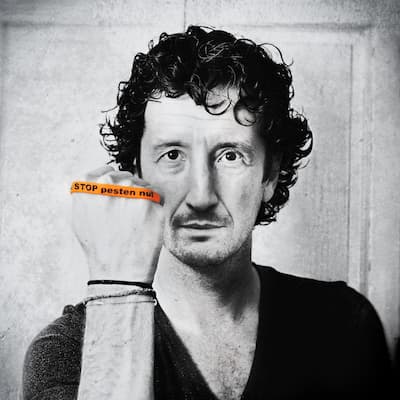If you think giving someone the cold shoulder inflicts pain only on them, beware. A new study shows that individuals who deliberately shun another person are equally distressed by the experience.
"In real life and in academic studies, we tend to focus on the harm done to victims in cases of social aggression," says co-author Richard Ryan, professor of clinical and social psychology at the University of Rochester. "This study shows that when people bend to pressure to exclude others, they also pay a steep personal cost. Their distress is different from the person excluded, but no less intense."
What causes this discomfort? The research found that complying with instructions to exclude another person leads most people to feel shame and guilt, along with a diminished sense of autonomy, explains Nicole Legate, lead author of the Psychological Science paper and a doctoral candidate at the University of Rochester. The results also showed that inflicting social pain makes people feel less connected to others. "We are social animals at heart," says Legate. "We typically are empathetic and avoid harming others unless we feel threatened."
The findings point to the hidden price of going along with demands to exclude individuals based on social stigmas, such as being gay, write the authors. The study also provides insight into the harm to both parties in cases of social bullying.
To capture the dual dynamics of social rejection, the researchers turned to Cyberball, an online game developed by ostracism researcher Kipling Williams of Purdue University. For this study, each participant tossed a ball with two other "players" in the game. The participant is led to believe that the other players are controlled by real people from offsite computers. In fact, the virtual players are part of the experiment and are pre-programmed to either play fair (share the ball equally) or play mean (exclude one player after initially sharing the ball twice).
The researchers randomly assigned 152 undergraduates to one of four game scenarios. In the "ostracizer" group, one of the virtual players was programmed to exclude the other virtual player and the study participant was instructed to exclude the same player. In a second set-up, the tables were turned. This time the pre-programmed players froze out the study participant. The study participant, who read instructions to throw the ball to other players, was left empty handed for most of the game, watching the ball pass back and forth, unable to join in.
Before and following the online game, participants completed the same 20-item survey to assess their mood as well as their sense of autonomy, competence, and relatedness.
Consistent with earlier research on ostracism, the study found that being shunned, even by faceless strangers in a computer game, was upsetting and lowered participant's mood. "Although there are no visible scars, ostracism has been shown to activate the same neural pathways as physical pain," says Ryan. But complying with instructions to exclude others was equally disheartening, the data shows, albeit for different reasons. This study suggests that the psychological costs of rejecting others is linked primarily to the thwarting of autonomy and relatedness.
The results, write the authors, support self-determination theory, which asserts that people across cultures have basic human needs for autonomy, competence, and relatedness and meeting these hard-wired needs leads to greater happiness and psychological growth.
The researchers also tested the separate effects of simply following instructions that did not involve ostracizing others. Students directed to toss the ball equally to all players reported feeling less freedom than the "neutral" group that was allowed to play the game as they choose. However, neither of these latter groups experienced the distress evidenced by players who complied in excluding others.
These new experiments build on the classic work of Yale University psychologist Stanley Milgram and others who demonstrated that people are disturbingly willing to inflict pain on others when instructed to by an authority. As in Milgram's studies, only a small number of the participants in this current research refused to snub the other player. The authors suggest that future investigations could explore the differences between individuals who comply with and those who defy pressure to harm others. Cody DeHaan from the Univeristy of Rochester and Netta Weinstein from the University of Essex, United Kingdom, also contributed to this study.
About the University of Rochester
The University of Rochester is one of the nation's leading private universities. Located in Rochester, N.Y., the University gives students exceptional opportunities for interdisciplinary study and close collaboration with faculty through its unique cluster-based curriculum. Its College, School of Arts and Sciences, and Hajim School of Engineering and Applied Sciences are complemented by its Eastman School of Music, Simon School of Business, Warner School of Education, Laboratory for Laser Energetics, School of Medicine and Dentistry, School of Nursing, Eastman Institute for Oral Health, and the Memorial Art Gallery.
Kenniscentrum Pesten per doelgroep
Stichting Stop Pesten Nu vertrouwt volledig op vrijwillige donaties en de inzet van vrijwilligers om haar belangrijke werk mogelijk te maken. Wij ontvangen geen subsidies, waardoor wij volledig afhankelijk zijn van de steun van mensen zoals u.
Tip van de redactie! Heb je haast? Navigeer dan snel naar:

► Scholen & Professionals Kenniscentrum Pesten in het Onderwijs
- Of navigeer direct naar de informatie per functionaris: Schooldirectie & MT / Anti-pest coördinator / Leerkracht / Mentor / Ouderraad & MR
- Leerlingen & opvoeders: Kinderen & Jongeren (Leerlingen) / Ouders & Opvoeders
► Sportverenigingen Kenniscentrum Pesten in de Sport
- Of navigeer direct naar de informatie per functionaris: Bestuurders / Coaches, Trainers & Begeleiders / (Top)Sporters & Scheidsrechters
- Jonge leden & ouders Kinderen & Jongeren (Leerlingen) / Ouders & Opvoeders
► Werkgevers Kenniscentrum Pesten op het Werk
- Of navigeer direct naar de informatie per functionaris: Directie en bestuurders / HRM / MT en Leidinggevenden / Medewerkers / Ondernemersraden / Vertrouwenspersonen
► Ouderen Kenniscentrum Pesten in Woonzorgcentra

Breng snel een bezoekje aan ...
► Kenniscentrum (Klassiek) Pesten
► Kenniscentrum Online pesten (cyberpesten)
► Kennisbank & Downloadcentrum o.a. Beleid & Factsheets / Handleidingen / Lesmaterialen / Posters / Wetenschappelijke Onderzoeken
► Ik word gepest, wat kan ik doen



